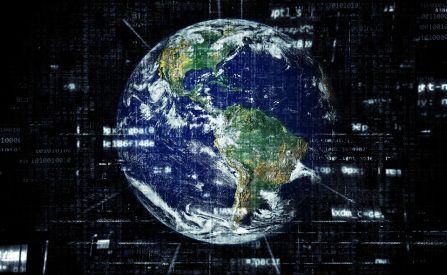
The Internet of Things (IoT) has become a buzzword in recent years, and for good reason. IoT refers to the network of physical objects – devices, vehicles, appliances, and other items embedded with sensors, software, and connectivity – that enables them to connect and exchange data. These connected devices are changing the way we live and work, revolutionizing industries, and transforming our daily lives in countless ways.
Impact on Society
IoT has had a profound impact on society, particularly in terms of convenience and efficiency. Connected devices, such as smart home appliances, wearable fitness trackers, and connected cars, have made our lives easier and more streamlined. We can control our thermostats, lights, and security systems from our smartphones, monitor our health and fitness levels in real-time, and even have our cars communicate with each other to avoid accidents and traffic congestion.
Furthermore, IoT has also contributed to environmental sustainability by enabling more efficient use of resources. Smart energy grids, for example, can optimize energy consumption and reduce waste, while connected sensors in agriculture can help farmers monitor and manage crop growth and irrigation more effectively.
Impact on Businesses
Businesses have also been transformed by IoT, with a wide range of industries reaping the benefits of connected devices. From manufacturing and logistics to healthcare and retail, IoT has revolutionized the way businesses operate and serve their customers.
For example, IoT has enabled manufacturers to implement predictive maintenance, using sensor data to predict when equipment is likely to fail and schedule maintenance before it happens. This has resulted in lower maintenance costs and reduced downtime, leading to greater overall efficiency and productivity.
In healthcare, IoT has facilitated the development of remote patient monitoring devices, allowing healthcare providers to track patients’ vital signs and other health data in real-time, leading to more personalized and proactive care. In retail, IoT has revolutionized the customer experience, with connected devices offering personalized recommendations and seamless checkout processes.
Challenges and Considerations
While IoT has undeniable benefits, it also presents a number of challenges and considerations. Security and privacy concerns are at the forefront of these challenges, as the proliferation of connected devices increases the potential for data breaches and unauthorized access. As more and more devices become interconnected, ensuring the security of the IoT ecosystem becomes increasingly complex.
Furthermore, interoperability and standardization are key considerations for the continued growth and success of IoT. As the number of devices and platforms continues to grow, ensuring that they can all communicate and work together seamlessly becomes increasingly important. Standards and protocols for IoT devices and communication are essential for the continued development of the IoT ecosystem.
Conclusion
The Internet of Things is transforming the way we live and work, with connected devices revolutionizing our daily lives and reshaping industries. From smart homes to connected car technology, IoT has the potential to create a more convenient and efficient world for all of us.
However, it is important to address the challenges and considerations associated with IoT, such as security, privacy, and interoperability, in order to fully realize the potential of this technology. With the right approach, IoT has the power to create a more connected, sustainable, and innovative future for society and businesses alike.
FAQs
What is the Internet of Things (IoT)?
The Internet of Things refers to the network of physical objects embedded with sensors, software, and connectivity that enables them to connect and exchange data.
How is IoT changing the way we live and work?
IoT is revolutionizing the way we live and work by making our lives more convenient and efficient, transforming industries, and creating new opportunities for innovation and sustainability.
What are some challenges and considerations associated with IoT?
Security, privacy, interoperability, and standardization are key challenges and considerations for IoT, as the proliferation of connected devices increases the potential for data breaches and unauthorized access, and ensuring that all devices can communicate and work together seamlessly becomes increasingly important.



